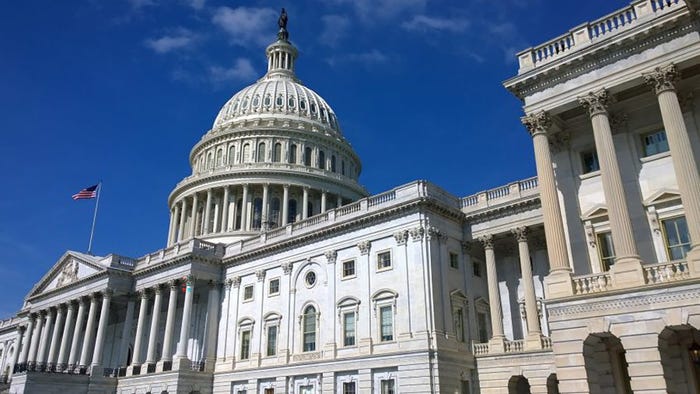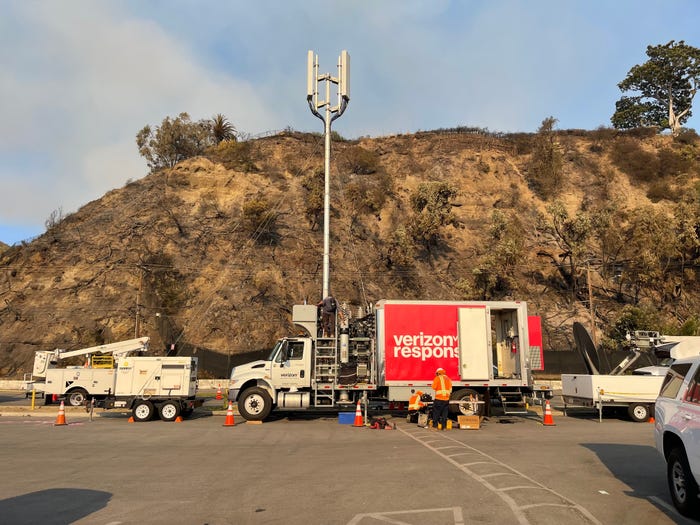Rosenworcel proposes using spectrum-auction proceeds to fund NG911 deploymentsRosenworcel proposes using spectrum-auction proceeds to fund NG911 deployments

FCC Chairwoman Jessica Rosenworcel this week proposed that future auction proceeds be used to fund the technological migration of U.S. public-safety answering points (PSAPs) from legacy systems to IP-based next-generation 911 (NG911) platforms.
Rosenworcel unveiled her idea during an event organized in Washington, D.C.—organized by the Public Safety Broadband Technology Association—celebrating the 10th anniversary of the FirstNet Authority being created to build a nationwide public-safety broadband network (NPSBN). A key player in the push for FirstNet while serving as counsel to the Senate Commerce Committee a decade ago, Rosenworcel cited numerous parallels between the FirstNet initiative and the NG911 transition.
“We are remaking our first-responder networks for the digital age.” Rosenworcel said, referring to FirstNet. “Now, I think we need a plan to remake our 911 systems for the digital age, too. After all, a public-safety network is only as powerful as the networks that allow all of us to reach emergency services in the first place.
“And let’s face it, our 911 systems need an upgrade. There are now more than 6,000 911 call centers across the country, and many of them use legacy technology that was really built for an era when most communications involved a curly cord and a jack in the wall.”
NG911 technology promises to let PSAPs receive emergency notifications that leverage text, data, photo and video communications, as well as voice calls that are the focus of the legacy 911 system. NG911 platforms also leverage IP-based routing to support redundant connectivity can reduce 911 outages—unwanted events that have happened too frequently in recent years, according to Rosenworcel.
There is general consensus that PSAPs should migrate to NG911, but there are many challenges associated with executing it. Perhaps the biggest of these is funding, as most estimates indicate that it will cost between $9 billion and $15 billion to transition all PSAPs nationwide to NG911.
In recent years, there have been numerous bills in Congress that proposed to pay for a nationwide transition to NG911, but all have failed.
Rosenworcel said she believes there is an opportunity to secure a federal funding source for NG911 deployment this year.
Congress must decide by Sept. 30—the end of the federal government’s fiscal year—whether to renew the FCC’s authorization to conduct spectrum auctions, something the agency has done since 1994. When Congress reauthorized the FCC’s auction powers a decade ago, $7 billion in auction proceeds were earmarked to fund the FirstNet Authority.
Congress should consider a similar approach this year, but auction proceeds should be dedicated to fund the transition to NG911, Rosenworcel said.
“Now is the time for Congress to develop legislation to extend [the FCC’s authority to auction spectrum], so the agency can continue to offer airwaves for new commercial uses and power our wireless future,” Rosenworcel said. “But it can go one better and copy the model used to create FirstNet. It can take the first set of funds raised from our next auctions and use them to support a nationwide upgrade of 911.
“Once again, we would be using the auction of public airwaves to support public safety. And the funds would flow to every state and jurisdiction with 911 call centers to help make next-generation 911 a reality nationwide. You can think of it this way: This is next-generation spectrum for next-generation 911.”
Many public-safety representatives expressed optimism after Rosenworcel advanced the notion of using spectrum-auction proceeds to fund NG911 deployments nationwide. This was the first major public announcement addressing NG911 funding since the failure of the Build Back Better bill—a massive spending package proposed by Democrats that included some NG911 funding, albeit relatively little in the final draft of the legislation.
Currently, the lone standalone bill proposing NG911 funding is one co-sponsored by Sen. Amy Klobuchar (D-Minn.) and Sen. Catherine Cortez Masto (D-Nev.). That bill was introduced in September 2021.





